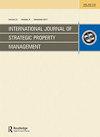组织结构对肯尼亚政府旅游机构战略实施的贡献
IF 2
4区 管理学
Q3 MANAGEMENT
引用次数: 1
摘要
目的:本研究的目的是考察组织结构对肯尼亚政府旅游机构战略实施的贡献。研究方法:本研究采用实证主义方法研究哲学。本研究采用解释性和描述性研究设计。研究对象包括旅游业。该研究包括了旅游部本身,因为旅游部是管理和监督旅游机构运营的上级部门,总共提供了10个研究领域。根据以下公式得到327个样本。本研究采用原始数据。该研究采用问卷调查和访谈指南来收集定性和定量数据。定量数据采用科学方法分析,定性数据采用专题分析。描述性统计首先使用频率和图表来分析被调查者的人口因素。根据研究假设,采用相关统计和多元线性回归分析等推理统计方法检验各变量之间的关系。研究发现:组织结构对组织目标和利润的实现有显著影响。组织的功能和目标、员工学习和成长的结构以及沟通系统对组织如何实现其目标和利润都有影响。文化也被发现在战略的实施中发挥关键作用,从而实现组织的既定目标和利润。组织规范、道德规范、员工培训和组织氛围是在实施战略时取得成功的关键。对理论、实践和政策的独特贡献:为了在旅游业中有效地实施战略,组织结构需要有沟通渠道、简单的报告层、灵活的结构和良好的系统,以确保组织中的快速决策。本文章由计算机程序翻译,如有差异,请以英文原文为准。
Contribution of Organizational Structure on Strategy Implementation in Kenya Government Tourism Agencies
Purpose: The purpose of this study was to examine the contribution of organizational structure on strategy implementation in Kenya government tourism agencies.
Methodology: The study used a positivist approach research philosophy. The research designs employed in this study were explanatory and descriptive research designs. The study population comprised of the tourism industry. The study included the ministry of tourism itself since it is the parent ministry that regulates and oversees the operations of the tourism agencies to give a total of 10 areas of study. A sample of 327 was achieved based on the following formula. This study used primary data. The study used questionnaires and interview guides to collect both qualitative and quantitative data. Quantitative data was analyzed through scientific methods while qualitative data was analyzed thematically. The descriptive statistics was first used to analyze the demographic factors of the respondents using frequencies and charts. Inferential statistics such as correlation and multiple linear regression analysis were used to test the relationship among the variables as per the study hypothesis.
Findings: The structure of an organization was found to have significant effect on the realization of objectives and profits in an organization. The organizational functions and targets, the structure of employee learning and growth and systems of communications have an influence on how organizations achieve their objectives and their profits. Culture also has been found to play its critical role in implementation of strategies and consequently realizations of set objectives and profits in organizations. Organizational norms, ethics, employee training and organizational climate are very key in achieving success while implementing strategies.
Unique Contribution to Theory, Practice and Policy: To effectively implement strategies in the tourism industry, the organizational structures need to have lines of communication, simple layer of reporting, flexible structure and good systems which ensure quick decision making in organizations.
求助全文
通过发布文献求助,成功后即可免费获取论文全文。
去求助
来源期刊
CiteScore
4.00
自引率
18.50%
发文量
23
审稿时长
15 weeks
期刊介绍:
International Journal of Strategic Property Management is a peer-reviewed, interdisciplinary journal which publishes original research papers. The journal provides a forum for discussion and debate relating to all areas of strategic property management. Topics include, but are not limited to, the following: asset management, facilities management, property policy, budgeting and financial controls, enhancing residential property value, marketing and leasing, risk management, real estate valuation and investment, innovations in residential management, housing finance, sustainability and housing development, applications, etc.

 求助内容:
求助内容: 应助结果提醒方式:
应助结果提醒方式:


